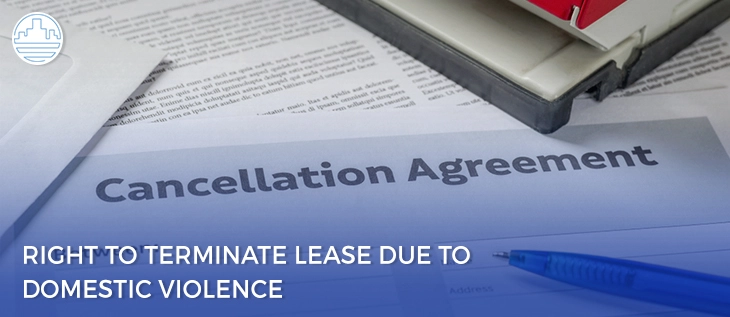
Is Domestic Violence Legal Grounds for Early Lease Termination?
Early lease termination laws allow victims of domestic violence, harassment, sexual assault, or stalking, to terminate their lease by giving written notice of termination. While the law authorizes breaking a lease for domestic violence by a tenant or a co-tenant, what under these circumstances are your legal duties as a landlord, and what are your rights?
First up, it’s important to know which documents should be made available to you to terminate a lease early. Along with the notice of termination, NRS 118A.345(2)-(3) mandates that the tenant has to make available to you either of the following documents:
- A copy of a written report from a law enforcement agency indicating that the tenant, co-tenant, or household member has notified that the law enforcement agency of the harassment, sexual assault, or stalking, as applicable.
- A copy of a temporary or extended protection order issued to the tenant, co-tenant, or household member who is the victim of domestic violence, harassment, sexual assault, or stalking.
- A copy of a written affidavit signed by a qualified third party acting in his or her official capacity stating that the tenant, co-tenant, or household member is a victim of domestic violence and identifying the adverse party.
It’s important to note that the termination is possible only if the events or circumstances related to the domestic violence, harassment, sexual assault, or stalking occurred within 90 days preceding the domestic violence termination notice. In such cases, the termination is effective thirty days after the tenant’s lease cancellation letter, or at the end of the current rental period, whichever is earlier.
Liability of the Tenant Post Domestic Violence Termination Notice
Once the tenant terminates the lease on the above grounds, their liability is limited only to “any rent owed or required to be paid through the date of termination and any other outstanding obligations.” The law mandates that if the tenant has any prepaid rent, the same can be retained unless the amount exceeds what is owed for that rental period. Also, the landlord is not authorized to withhold any security deposit if the rental agreement is terminated pursuant to this section.
Can the Landlord Recover Damages after a Domestic Violence Termination Notice?
While the tenant has limited liability as detailed above, in case of any money damages suffered by the landlord as a result of the early termination, the landlord has the right to sue the “adverse party” for economic losses “including, without limitation, unpaid rent, fees relating to early termination, costs for the repair of any damages to the dwelling and any reductions in or waivers of rent previously extended to the tenant or co-tenant who terminates the rental agreement pursuant to this section.”
The “adverse party” here, refers to “a person who is named in an order for protection against domestic violence, harassment, sexual assault or stalking.”
What are Some of the Other Obligations of the Landlord in Such Cases?
- The landlord has to make sure that he does not provide any details of the whereabouts of the tenant, co-tenant, or household member, to the “adverse party”.
- He must not disclose the “early termination” to a prospective landlord.
- Upon request from the tenant, the landlord must install a new lock and pay for it. While the landlord can keep a key to the new lock installed, he has to make sure not to provide the key to the “adverse party” or any access to the unit unless a law enforcement officer is present.
You could also read the detailed provisions of the law dealing with breaking a lease for domestic violence, here:- https://www.leg.state.nv.us/nrs/nrs-118a.html#NRS118ASec345
It stands to reason that in cases where a tenant reaches out to the landlord with claims of domestic violence but does not have the appropriate documentation, it is appropriate for landlords to encourage the victim to seek the help of a law enforcement agency or other professionals. This will provide the victim with the opportunity to retrieve the necessary legal documentation and get any assistance that they require.
Learn more about how we can help. Customized solutions for large portfolios!
